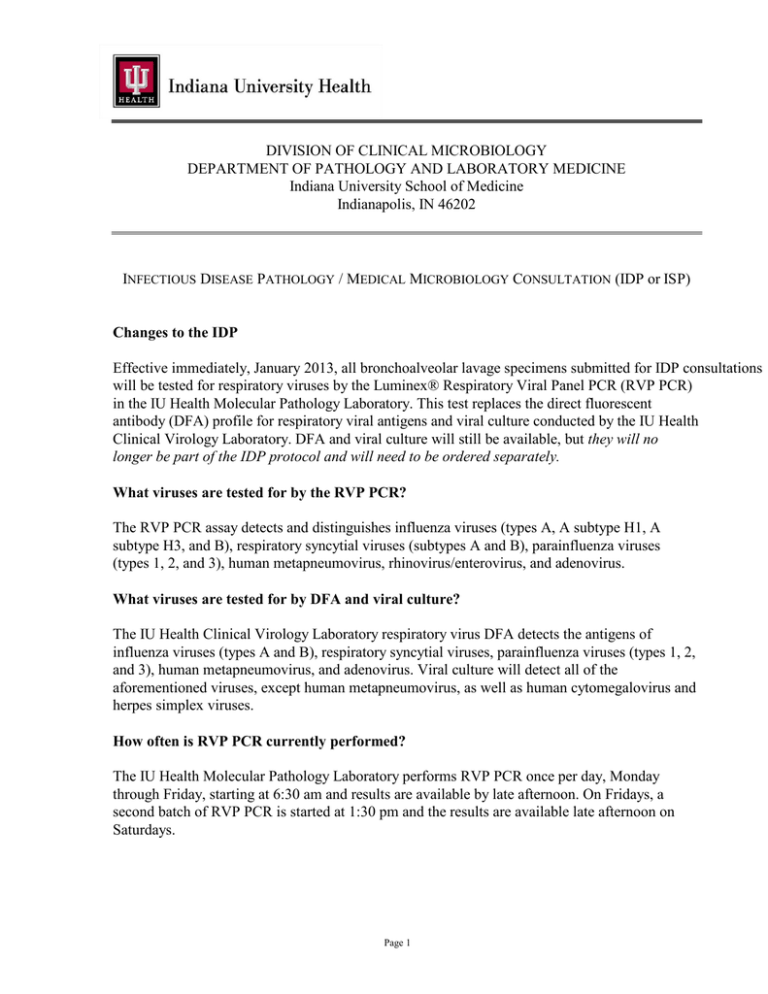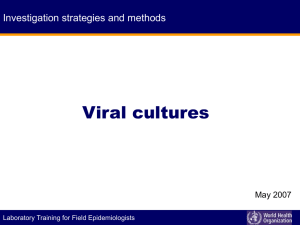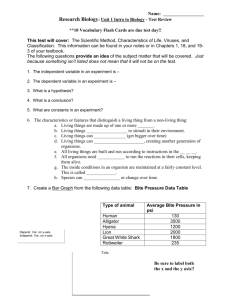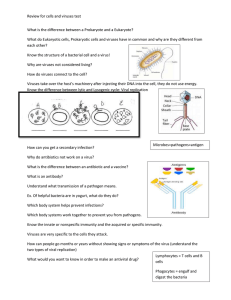Fact Sheet - IU Health
advertisement

DIVISION OF CLINICAL MICROBIOLOGY DEPARTMENT OF PATHOLOGY AND LABORATORY MEDICINE Indiana University School of Medicine Indianapolis, IN 46202 INFECTIOUS DISEASE PATHOLOGY / MEDICAL MICROBIOLOGY CONSULTATION (IDP or ISP) Changes to the IDP Effective immediately, January 2013, all bronchoalveolar lavage specimens submitted for IDP consultations will be tested for respiratory viruses by the Luminex® Respiratory Viral Panel PCR (RVP PCR) in the IU Health Molecular Pathology Laboratory. This test replaces the direct fluorescent antibody (DFA) profile for respiratory viral antigens and viral culture conducted by the IU Health Clinical Virology Laboratory. DFA and viral culture will still be available, but they will no longer be part of the IDP protocol and will need to be ordered separately. What viruses are tested for by the RVP PCR? The RVP PCR assay detects and distinguishes influenza viruses (types A, A subtype H1, A subtype H3, and B), respiratory syncytial viruses (subtypes A and B), parainfluenza viruses (types 1, 2, and 3), human metapneumovirus, rhinovirus/enterovirus, and adenovirus. What viruses are tested for by DFA and viral culture? The IU Health Clinical Virology Laboratory respiratory virus DFA detects the antigens of influenza viruses (types A and B), respiratory syncytial viruses, parainfluenza viruses (types 1, 2, and 3), human metapneumovirus, and adenovirus. Viral culture will detect all of the aforementioned viruses, except human metapneumovirus, as well as human cytomegalovirus and herpes simplex viruses. How often is RVP PCR currently performed? The IU Health Molecular Pathology Laboratory performs RVP PCR once per day, Monday through Friday, starting at 6:30 am and results are available by late afternoon. On Fridays, a second batch of RVP PCR is started at 1:30 pm and the results are available late afternoon on Saturdays. Page 1 What are the other components of the IDP? 1. Microscopic review of patient specimens by pathologists and medical microbiologists. The focus of this protocol is on the detection of pathogenic microorganisms and/or viral cytopathology in patient specimens by direct microscopic examination. Briefly, specimen smears are prepared and stained using Diff-Quik, modified-Kinyoun acid fast, Gomori methenamine silver, calcofluor white, Giemsa, and Gram stains. Slides are next reviewed by pathology residents, medical microbiologists, and attending pathologists from the Department of Pathology and Laboratory Medicine. From these slides, a large variety of microorganisms, including various bacteria and Pneumocystis jirovecii, can be rapidly detected and reported to clinicians. 2. Additional stains and cultures for detecting bacteria, mycobacteria, and fungi. In addition to the stains carried out and reviewed by residents and faculty, additional stains for mycobacteria, fungi, and Legionella species are performed and interpreted by laboratory personnel. Cultures of pulmonary specimens are routinely done for bacteria, including legionellae and mycobacteria, and fungi. PCR tests for Chlamydophila pneumoniae and Mycoplasma pneumoniae are performed by a reference laboratory at the request of the staff physician, attending clinician, or consulting specialist per approval of the staff pathologist. Because BAL specimens commonly contain microbial flora of the upper respiratory tract, cultures for anaerobic bacteria are not done routinely on these specimens, but may be done if morphologic findings or clinical circumstances suggest the need for anaerobic cultures (e.g., the bronchoscopist notes a bronchus filled with pus and other clinical clues suggesting anaerobe infection). Otherwise, anaerobic cultures are set up only on specimens unlikely to be contaminated with normal flora. Culture results are reported when completed, which can take up to 8 weeks for mycobacteria, or when warranted from significant presumptive identifications based on preliminary data. Who do I contact in the Division of Clinical Microbiology to RUGHU the IDP? 1. IU Health Clinical Microbiology Laboratory Phone: 317-491-6999 Page 2



